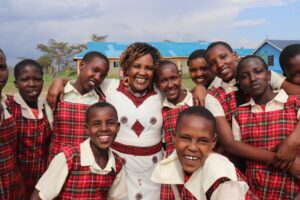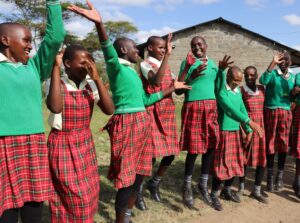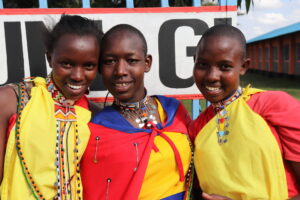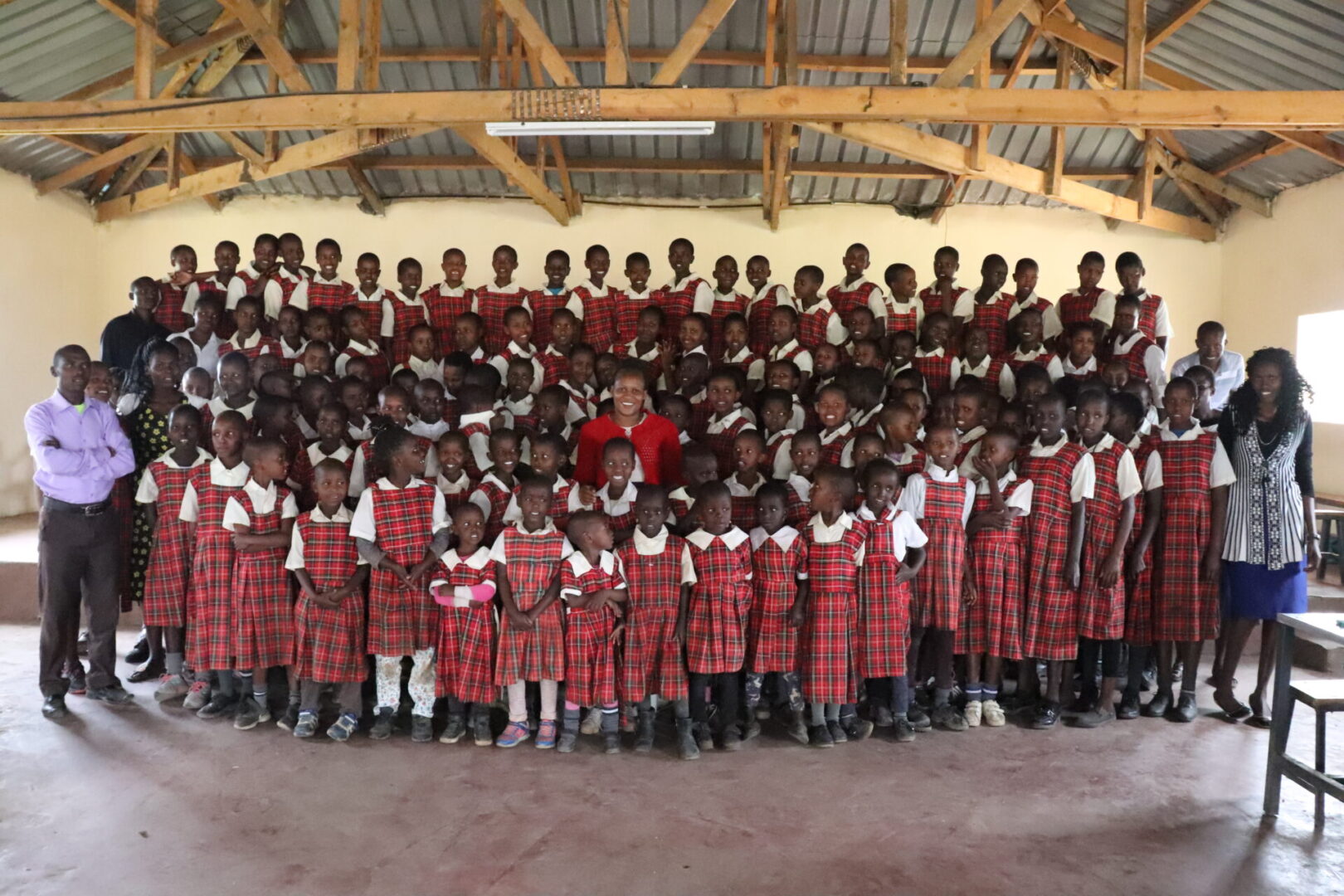Providing schooling for disadvantaged girls: Q&A with Nasaruni Academy
Written by Olivia Nater | Published: April 27, 2023
Through our Global Partners program, Population Connection supports a growing number of grassroots organizations around the world working to increase access to education, public health and family planning services. Their efforts make a vital difference in their local communities and represent the “final step” in our shared work to make the world a more just and sustainable place for everyone.
Get to know our wonderful partners in this Q&A series! Here, we talk to the Executive Director of the Nasaruni Academy for Maasai Girls, Michelle Cude. Founded by Alice and Moses Sayo in 2013, the Nasaruni Academy provides schooling for disadvantaged Maasai girls in rural Narok, Kenya.
What prompted you to start your organization?

You know, you dream about having an opportunity to really make a difference for people and to play a role in creating transformation and building hope, and then, one day… that opportunity comes along.
Alice Sayo, a Maasai teacher and administrator from Kenya, came to my university in the United States and shared her vision of starting a school for the young girls in her rural home community who didn’t have an opportunity to go to school. So, in faith, we bought five acres of dusty terrain in Narok County, Kenya. Then, we built the first tin classroom in 2013 for a primary school for the local Maasai community.
Seeing the faces of those young girls smiling and loving being in school continues to inspire us to build more classrooms and libraries and spaces for girls to have a safe, nurturing environment to follow their dreams and build a future. So many people are now part of the network of Nasaruni supporters helping to bring hope and transformation to communities through education, but it all started by listening to Alice’s need and being willing to share her dream and take a leap of faith.
What programs or projects are you currently working on?
Currently, we are working to raise funds to build a clinic adjacent to the school. We want to be able to provide better medical treatment for the girls, as well as for the women and others in the local community. It is a need given the cost and difficulty of travel to the hospital in town.
The government of Kenya is also instituting middle schools now where they have only had primary and high schools. We are transitioning our facilities to meet the needs for a middle school on campus as well. We follow the government curriculum and school structure, so we want to be ready to accept these students who need a place to come to school since public schools are frequently overcrowded and understaffed.
What do you hope to achieve in the next five years?

Now we are working to spread the vision of Nasaruni Academy to bring hope to other areas. The Nasaruni Education Foundation (which supports the Academy and High School) is now envisioning more ways to share the power of literacy, for example, through Books in a Box. This is a themed box of books which acts as a mini-library, putting books in the hands of students in rural schools, where there are no libraries.
For what seems like a minimal investment, we can really open the world for these students. Literacy is a powerful force for good.
We also hope to begin a fully functioning trade school alongside the academic track at Nasaruni High School, in order to meet the needs of the many students for whom university is not their preferred or available future step. We want those girls to have a practical training enabling them to support themselves and their families with a marketable trade, such as agriculture, or craft.
What have been some of the greatest challenges you have faced?
Drought is currently ravaging the countryside and making it impossible for many families to pay school fees. This means that girls are kept home from school because parents cannot afford for their uniforms or minimal fees for upkeep. Therefore, those girls are then falling behind in school and are much more liable for early marriage and pregnancy. We feel the pain of this on a personal level, as each girl is a part of the Nasaruni family, so this is much more than just a large-scale challenge.
What are you most proud of?

I am proud of the girls who face their own personal challenges and persevere in conditions most of us wouldn’t be willing to endure. Their resilience and determination make me so proud on their behalf. They are beautiful and strong, courageous and dedicated. I am so proud of them! I am also proud of the way that Alice and Moses have built our school to reflect and support the positive Maasai cultural traditions. Parents continually praise the commitment of Nasaruni to their Maasai values and want to bring their girls here because we do honor and celebrate those strong elements of the culture.
Anything else you’d like to share with Population Connection members?
I hope that you will take the time to look at our website to learn more about our work at Nasaruni.
Consider joining us in this global transformation work. We are always looking for people who are interested to be on teams for fundraising, event-planning, publicity, grant-writing, etc.
To learn more about Nasaruni, visit their website and follow them on Facebook!

